Happy New Year guys! Another year of cinema has come to an end and I am back again to show f my idiosyncratic, navel-gazing list about my journey to cinema this year.
This year’s list is filled with cinematic giants, a string of films foundational to cinema studies. This year has been an absorbing quest of uncovering the magnificence of cinema’s rich history. Through the saturation of these films, I have realized that not only cinema has a full language that blends time with space, but also that there are more than a thousand films to view for next year 2010, a considerable weight for a cinephile.
It is because thru these films that cinema viewing goes beyond stereotypical, that is, approaching the gates of film criticism and theory. Without this vision, I may have given up after watching Salo, or 120 Days of Sodom (Pasolini, 1974) on my laptop screen. For me, criticism has laid a backbone for a more critical viewing of cinema’s history, but it is theory that has made everything clear what the screen projects. It has been a tough decision for me especially in choosing for my top ten spots.
Meanwhile, I present to you my top twenty five spots for this year’s top favorites:
1 | Tokyo Story (Yasujiro Ozu, 1953)
 [my short take]
[my short take]
[Criterion, Bordwell's take]
2 | tied Seven Samurai (Akira Kurosawa, 1954)
La Grande Illusion (Jean Renoir, 1937)

 [my take on La Grande Illusion]
[my take on La Grande Illusion]
3 | Citizen Kane (Orson Welles, 1941)

4 | Sunrise: A Song of Two Humans (F. W. Murnau, 1928)

5 | The Rules of the Game (Jean Renoir, 1939)

6 | It’s a Wonderful Life (Frank Capra, 1946)
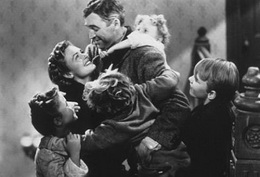
7 | Children of Paradise (Marcel Carne, 1945)

8 | tied Casablanca (Michael Curtis, 1942)
Vertigo (Alfred Hitchcock, 1958)
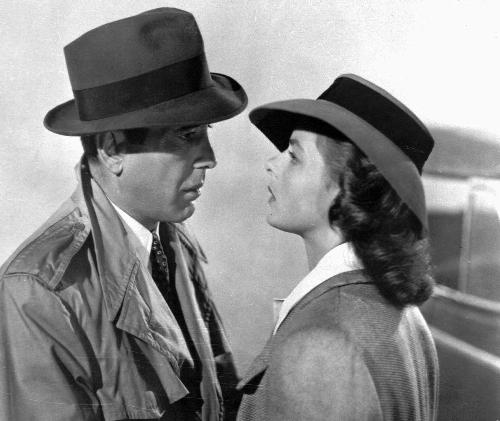
 [my take on Casablanca]
[my take on Casablanca]
9 | The Night of the Hunter (Charles Laughton, 1952)
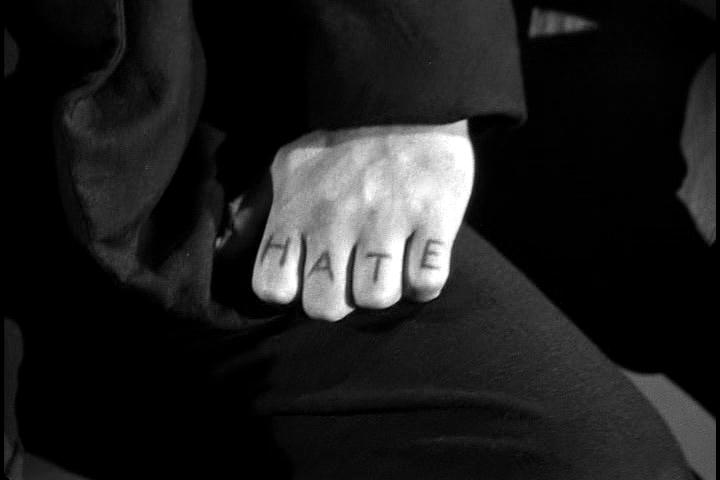
10 | Andrei Rublev (Andrei Tarkovsky, 1967)

11 | Breathless (Jean-Luc Godard, 1960)
 [theses on Godard]
[theses on Godard]
12 | Ugetsu Monogatari (Kenji Mizoguchi, 1953)
 [my screen shots on Ugetsu]
[my screen shots on Ugetsu]
13 | Man with a Movie Camera (Dziga Vertoz, 1928)
 [my take on Dziga Vertov]
[my take on Dziga Vertov]
14 | Last Laugh (F. W. Murnau, 1923)

15 | Rear Window (Alfred Hitchcock, 1954)

16 | The Piano (Jane Campion, 1993)

17 | tied Chunking Express (Wong Kar-wai, 1994)
Happy Together (Wong Kaw-wai, 1997)


18 | Late Spring (Yasujiro Ozu, 1949)

19 | Knife in the Water (Roman Polanski, 1961)

20 | The Earrings of Madame de… (Max Ophuls, 1953)

21 | Viridiana (Luis Buñuel, 1961)

22 | Bande a Part (Jean-Luc Godard, 1964)

[my take]
23 | Inland Empire (David Lynch, 2005)

24 | A Man and A Woman (Claude Lelouch, 1966)
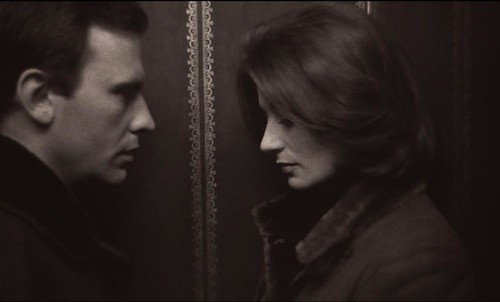 [my take on Un Homme et Une Femme]
[my take on Un Homme et Une Femme]
25 | Blade Runner (Ridley Scott, 1985)
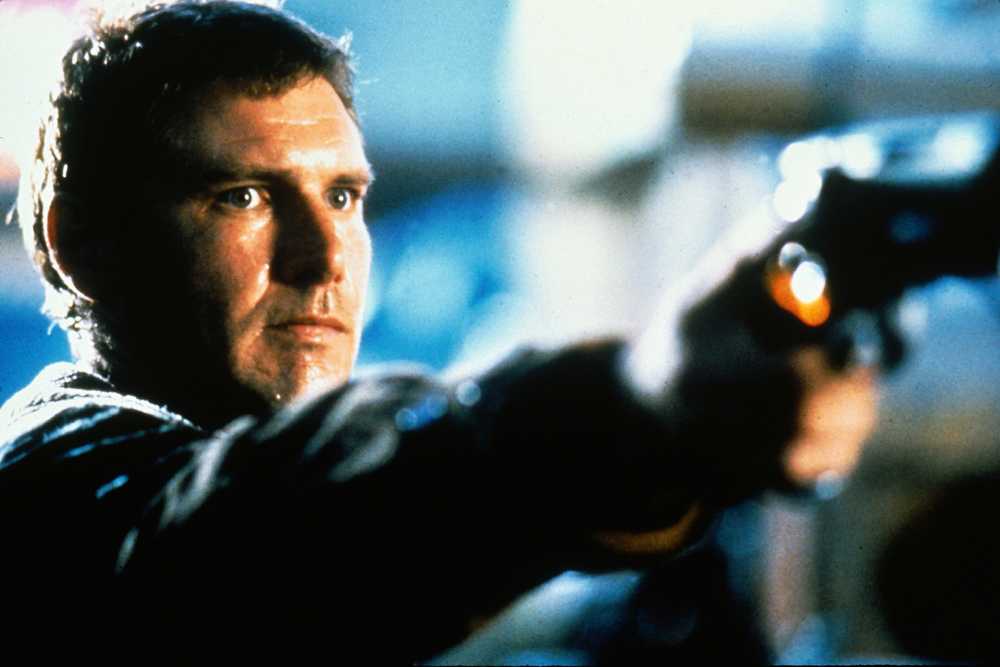
Choosing Tokyo Story by Yasujiro Ozu for my number one spot has the same reason quite a bit of last year, a deep personal attachment with the film. Twenty minutes before the ending when the old grandmother died, I felt a strain in my heart, agony. And it is when my grandfather’s death and burial, which I have never witnessed, came back to me. When Keizo, the son of the grandmother, arrived late, I poured tears and tears and tears, and for four years now filled with guilt and melancholy, I finally sensed a closure to my grandfather’s death. A rare feeling indeed from a film with such a simple story. My last year’s choice gave the same effect on me, a fulfilling sense of joy, pleasure and pain. A reminder of the vastness of human emotions and the long-chained memory of one’s own.
I also prepared other tops.
1 | Now Showing (Raya Martin, 2005)

2 | Kinatay (Brilante Mendoza, 2009)

3 | Bontoc Eulogy (Fuentes, 1995)

4 | Engkwentro (Pepe Diokno, 2009)

5 | Independencia (Raya Martin, 2009)
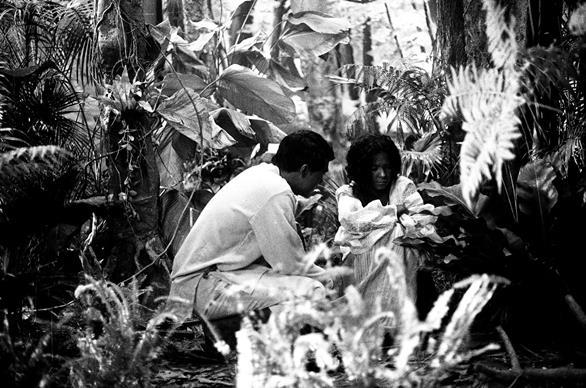
1 | Yi Yi: A One and a Two (Edward Yang, 2000)

2 | Inland Empire (David Lynch, 2005)

3 | Brokeback Mountain (Ang Lee, 2005)
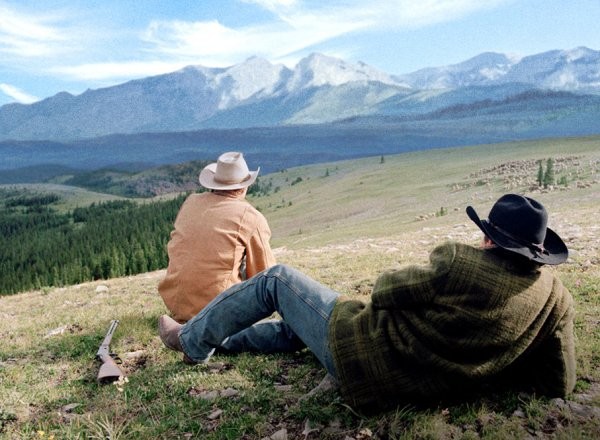
4 | Tropical Malady (Apichatpong Weerasethakul, 2004)

5 | 4 Months, 3 Weeks and 2 Days (Cristian Mungiu, 2008)

6 | Elephant (Gus Van-Sant, 2004)

7 | The Inconvenient Truth (Davis Guggenheim, 2006)

8 | Royal Tenenbaums (Wes Anderson, 2001)

9 | Russian Ark (Sukurov, 2002)

10 | Still Life (Jia-Zhake, 2005)

I hope you get to see all of them and I can’t wait ‘till next year.
The essays will follow next year.
Ciao!
****
This year’s list is filled with cinematic giants, a string of films foundational to cinema studies. This year has been an absorbing quest of uncovering the magnificence of cinema’s rich history. Through the saturation of these films, I have realized that not only cinema has a full language that blends time with space, but also that there are more than a thousand films to view for next year 2010, a considerable weight for a cinephile.
It is because thru these films that cinema viewing goes beyond stereotypical, that is, approaching the gates of film criticism and theory. Without this vision, I may have given up after watching Salo, or 120 Days of Sodom (Pasolini, 1974) on my laptop screen. For me, criticism has laid a backbone for a more critical viewing of cinema’s history, but it is theory that has made everything clear what the screen projects. It has been a tough decision for me especially in choosing for my top ten spots.
Meanwhile, I present to you my top twenty five spots for this year’s top favorites:
1 | Tokyo Story (Yasujiro Ozu, 1953)
 [my short take]
[my short take][Criterion, Bordwell's take]
2 | tied Seven Samurai (Akira Kurosawa, 1954)
La Grande Illusion (Jean Renoir, 1937)

 [my take on La Grande Illusion]
[my take on La Grande Illusion]3 | Citizen Kane (Orson Welles, 1941)

4 | Sunrise: A Song of Two Humans (F. W. Murnau, 1928)

5 | The Rules of the Game (Jean Renoir, 1939)

6 | It’s a Wonderful Life (Frank Capra, 1946)

7 | Children of Paradise (Marcel Carne, 1945)

8 | tied Casablanca (Michael Curtis, 1942)
Vertigo (Alfred Hitchcock, 1958)

 [my take on Casablanca]
[my take on Casablanca]9 | The Night of the Hunter (Charles Laughton, 1952)

10 | Andrei Rublev (Andrei Tarkovsky, 1967)

11 | Breathless (Jean-Luc Godard, 1960)
 [theses on Godard]
[theses on Godard]12 | Ugetsu Monogatari (Kenji Mizoguchi, 1953)
 [my screen shots on Ugetsu]
[my screen shots on Ugetsu]13 | Man with a Movie Camera (Dziga Vertoz, 1928)
 [my take on Dziga Vertov]
[my take on Dziga Vertov]14 | Last Laugh (F. W. Murnau, 1923)

15 | Rear Window (Alfred Hitchcock, 1954)

16 | The Piano (Jane Campion, 1993)

17 | tied Chunking Express (Wong Kar-wai, 1994)
Happy Together (Wong Kaw-wai, 1997)


18 | Late Spring (Yasujiro Ozu, 1949)

19 | Knife in the Water (Roman Polanski, 1961)

20 | The Earrings of Madame de… (Max Ophuls, 1953)

21 | Viridiana (Luis Buñuel, 1961)

22 | Bande a Part (Jean-Luc Godard, 1964)

[my take]
23 | Inland Empire (David Lynch, 2005)

24 | A Man and A Woman (Claude Lelouch, 1966)
 [my take on Un Homme et Une Femme]
[my take on Un Homme et Une Femme]25 | Blade Runner (Ridley Scott, 1985)

Choosing Tokyo Story by Yasujiro Ozu for my number one spot has the same reason quite a bit of last year, a deep personal attachment with the film. Twenty minutes before the ending when the old grandmother died, I felt a strain in my heart, agony. And it is when my grandfather’s death and burial, which I have never witnessed, came back to me. When Keizo, the son of the grandmother, arrived late, I poured tears and tears and tears, and for four years now filled with guilt and melancholy, I finally sensed a closure to my grandfather’s death. A rare feeling indeed from a film with such a simple story. My last year’s choice gave the same effect on me, a fulfilling sense of joy, pleasure and pain. A reminder of the vastness of human emotions and the long-chained memory of one’s own.
I also prepared other tops.
--------------------------------------
My Top Five Filipino Films
for this year:
1 | Now Showing (Raya Martin, 2005)

2 | Kinatay (Brilante Mendoza, 2009)

3 | Bontoc Eulogy (Fuentes, 1995)

4 | Engkwentro (Pepe Diokno, 2009)

5 | Independencia (Raya Martin, 2009)

--------------------------------------------
My Top 10 Films of the DECADE:
1 | Yi Yi: A One and a Two (Edward Yang, 2000)

2 | Inland Empire (David Lynch, 2005)

3 | Brokeback Mountain (Ang Lee, 2005)

4 | Tropical Malady (Apichatpong Weerasethakul, 2004)

5 | 4 Months, 3 Weeks and 2 Days (Cristian Mungiu, 2008)

6 | Elephant (Gus Van-Sant, 2004)

7 | The Inconvenient Truth (Davis Guggenheim, 2006)

8 | Royal Tenenbaums (Wes Anderson, 2001)

9 | Russian Ark (Sukurov, 2002)

10 | Still Life (Jia-Zhake, 2005)

I hope you get to see all of them and I can’t wait ‘till next year.
The essays will follow next year.
Ciao!
****

